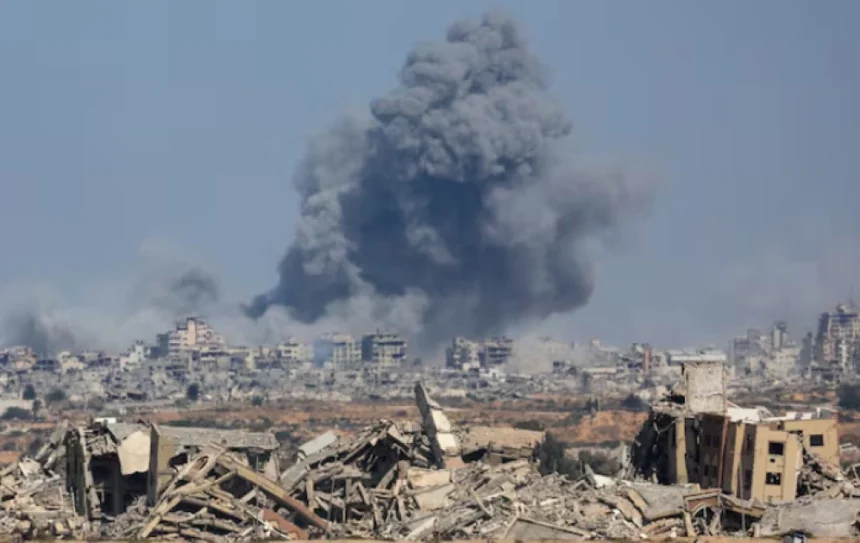The political shockwave generated by former President Donald Trump’s public deadline to Hamas—to reach a Gaza deal by 6 p.m. Sunday—extends far beyond the campaign trail. This intervention represents a fundamental challenge to the architecture of international diplomacy and signals a potential paradigm shift in how the United States projects power in the Middle East. Analyzing this move requires looking past the domestic political theater to its profound implications for global statecraft.
Erosion of Diplomatic Protocol and US Credibility
The cornerstone of effective international mediation is a unified national voice. Trump’s ultimatum, issued from outside the Oval Office, shatters this principle and creates a dangerous duality in American foreign policy.
-
Undermining the Sitting Administration: This act actively undermines the authority of President Biden and his diplomatic team, telling global actors that any agreement made with the current administration could be nullified or renegotiated in a matter of months. This makes it rational for parties like Hamas or Israel to delay commitments, waiting for a potentially more favorable deal post-election.
-
The “Two Presidents” Problem: For allies and adversaries alike, the U.S. now appears to have two competing commanders-in-chief. This perception weakens the bargaining power of official U.S. envoys and encourages other nations to engage in “forum shopping,” seeking out the channel (official or shadow) that best suits their interests.
Strategic Implications for Key Middle Eastern Actors
The deadline is not happening in a vacuum; it lands in a region already navigating fragile alliances and deep-seated rivalries.
-
Israel’s Strategic Dilemma: While Prime Minister Netanyahu’s government may privately welcome the increased pressure on Hamas, the public nature of the ultimatum complicates his position. It forces him to balance the immediate demands of his war cabinet with the long-term strategic need to maintain a working relationship with the current U.S. administration, which controls vital military aid and diplomatic cover.
-
Hamas’s Calculated Response: For Hamas, the deadline is a piece of propaganda and a tactical variable. They can use it to portray themselves as facing a unified U.S.-Israeli assault, potentially rallying regional support. Alternatively, they might see it as a reason to harden their stance, believing that Trump’s return could lead to a more comprehensive confrontation they can exploit for martyrdom narratives.
-
The Mediators’ Quandary (Qatar & Egypt): Nations like Qatar and Egypt, who have invested significant political capital in mediating, now find their role complicated. Their painstaking, behind-the-scenes work is suddenly subjected to a public, politically-driven timeline that may have no relation to the realities on the negotiating floor.
The “Trump Doctrine” of Coercive Diplomacy: A Preview
This ultimatum offers a clear window into the foreign policy approach of a potential second Trump term, which can be characterized as “Coercive Deadline Diplomacy.” Its tenets appear to be:
-
The Primacy of Public Ultimatums: Replacing quiet diplomacy with public, high-stakes demands designed to create maximum psychological pressure and media spectacle.
-
Transactionalism Over Alliances: Viewing international relations as a series of bilateral transactions rather than a web of multilateral alliances, thereby sidelining traditional partners and international bodies.
-
The Blurring of Domestic and Foreign Policy: Using foreign policy crises explicitly as tools for domestic political campaigning, leveraging international events to galvanize a domestic base.
Conclusion: A Precedent with Global Repercussions
The 6 p.m. Sunday deadline is more than a timestamp; it is a potential inflection point. Whether a deal is reached or not, the act itself has already done damage to the established norms of U.S. foreign policy. It signals to the world that the United States’ diplomatic stance may no longer be predictable from one election cycle to the next.
This creates a more volatile international environment, where adversaries may act more aggressively and allies may feel compelled to hedge their bets, pursuing independent security arrangements outside the U.S. umbrella. The ultimate consequence of Trump’s deadline, therefore, may not be measured in Gaza alone, but in the gradual erosion of a stable, U.S.-led international order.










